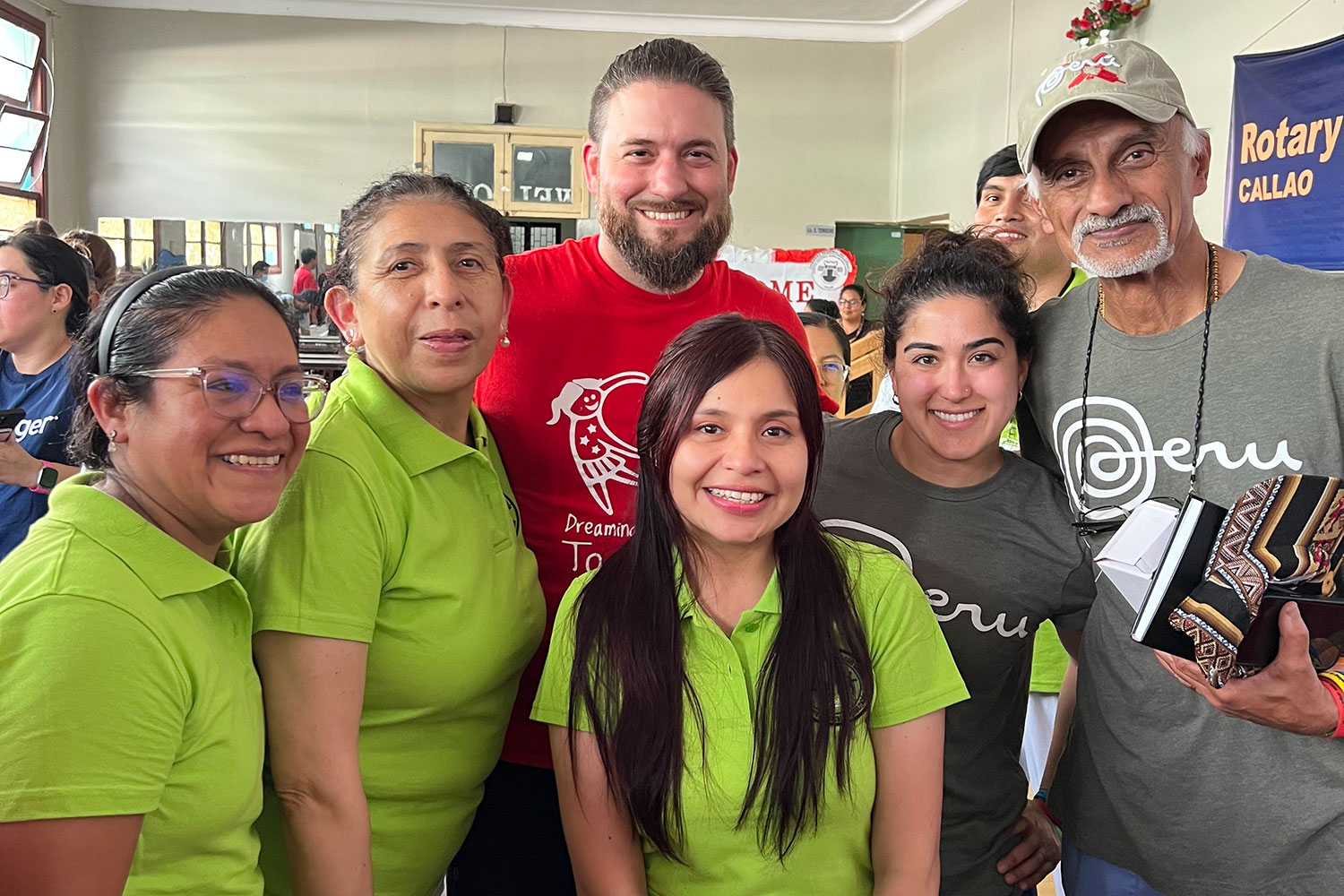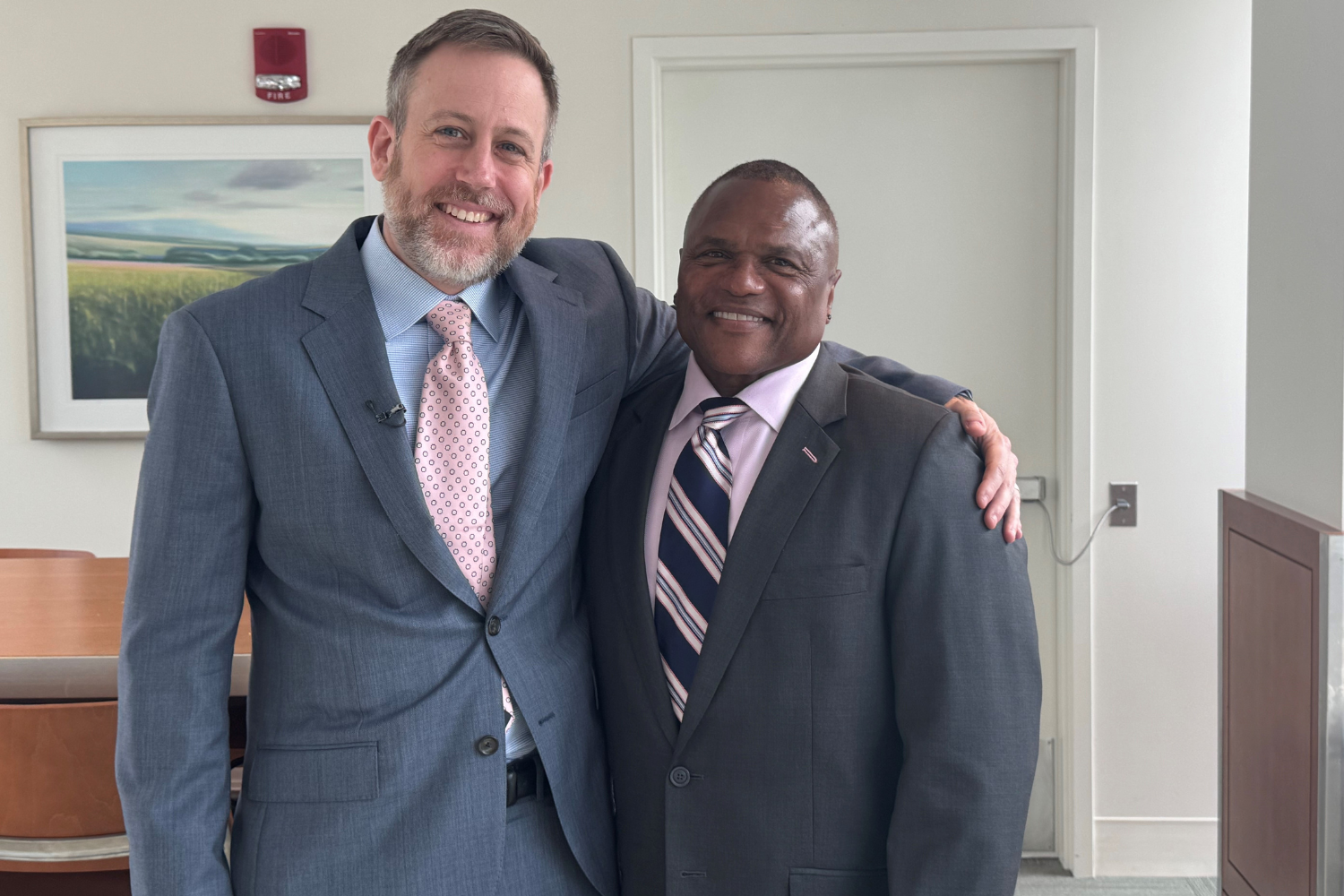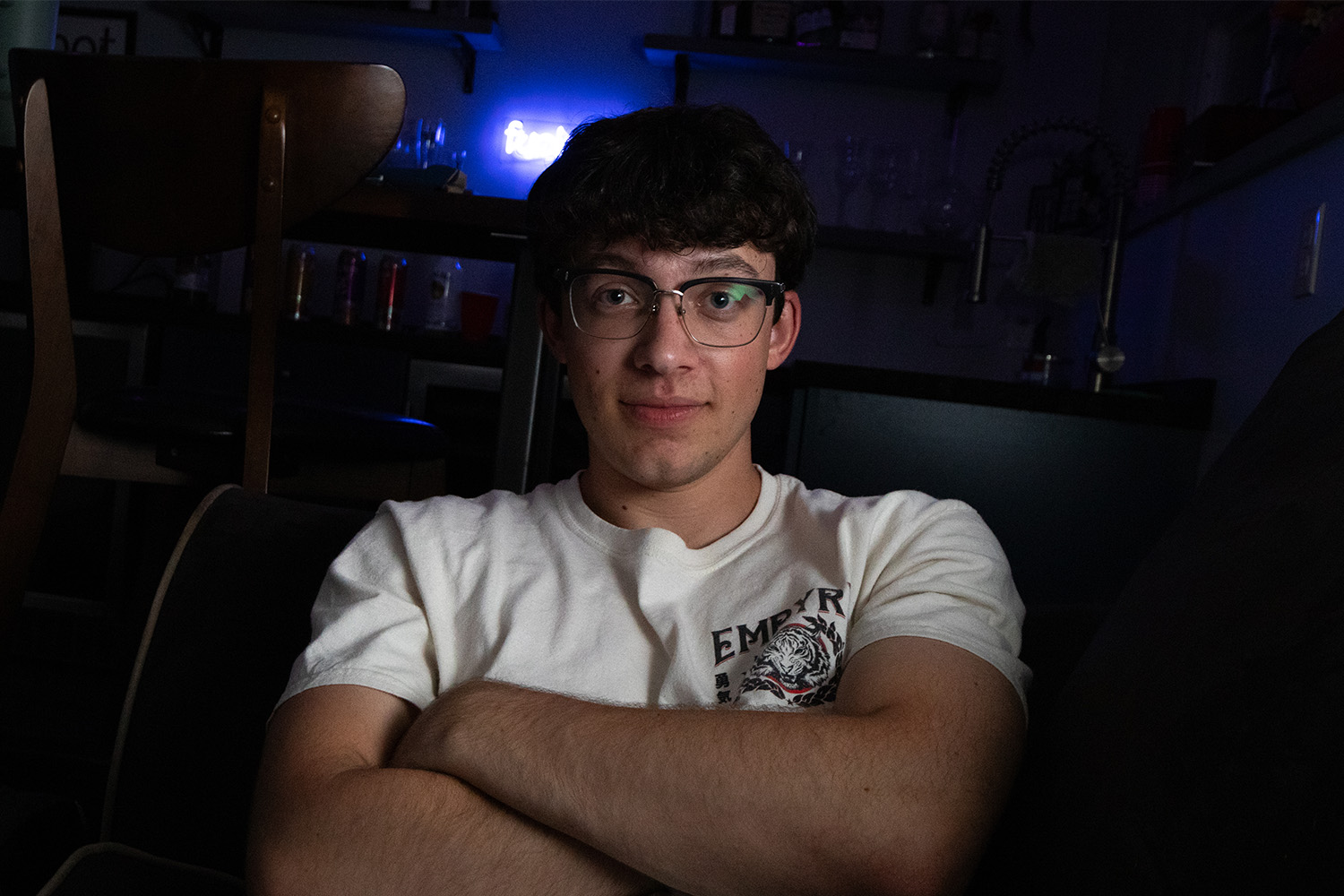Medical professionals need to become more active communicators on a range of public health questions, said the United States’ top health official in a Monday visit to UConn Health.
U.S. Surgeon General Jerome M. Adams, MD, MPH, told students from the UConn School of Medicine and UConn School of Dental Medicine they have the expertise and ability to calm fears and provide guidance on issues ranging from coronavirus to opioids. Adams’ keynote address was delivered at Student Research Day in Farmington.
Adams was introduced by Dr. Andy Agwunobi, CEO UConn Health and EVP of Health Affairs, who also welcomed those in attendance, including UConn President Thomas Katsouleas, Commissioner Renee Coleman-Mitchell and Deputy Commissioner Heather Aaron of the state Department of Public Health, medical students, faculty, staff, and guests from the offices of U.S. Sen. Richard Blumenthal and U.S. Rep. Jahana Hayes.
Adams, the 20th Surgeon General of The United States, a Cabinet position whose mission is to advance the health of the American people, took office with the motto, “better health through better partnerships,” and his core values reflect partnership at every level across the health care spectrum.
His speech focused on some of the most challenging health care issues of today, including the opioid epidemic and pain management. However, Adams said he would be remiss not to begin with the health topic in headlines across the world, Coronavirus (COVID-19).
“People are afraid of what they don’t know, and that is why as physicians it is important to be good communicators,” said Adams.
This year, 18,000 people will die of seasonal flu in the United States, yet there are currently only 70 positive tests for COVID-19. When people ask him what they can do to prevent it, Adams said he replies by asking, “Have you received your flu vaccine?” The answers are overwhelmingly in the negative, he said.
Best practices for COVID-19 are the same as for preventing exposure to any virus, Adams said. Hand washing, staying home from work or school when ill, and “social distancing” – say, an elbow bump in greeting instead of a handshake – are all examples.
“We have to show people by our actions, not just tell them,” Adams said.
He told UConn medical and dental students, regarding COVID-19, “you will remember this moment in your lives, and please don’t underestimate the ability you have through your influence, your social media channels, through your contacts in the community, and even as a student to be able to calm fears and be better communicators.”
Research Day is the culmination of medical and dental students’ projects for between one and two years. “Research day is so important because we need to figure out the next new innovations out there,” Adams said. “But we also need to figure out how we can double down on the most tried and true practices like vaccinations, and how we can help people understand that if we don’t learn from our past we are doomed to repeat it in many cases.”
Turning from COVID-19 to other top priorities, Adams discussed substance abuse and the opioid epidemic, which has been particularly severe in Connecticut, where last year, 1,200 people died from drug overdoses, the highest number ever recorded.
“Someone is dying of an opioid overdose in this country every 11 minutes,” Adams said. “This is a defining issue of our generation because it touches so many areas. It’s also a tremendous opportunity if we look at the opioid epidemic as a fire we need to put out, we will put it out.”
The opioid epidemic is symptomatic of an overall failure to adequately address pain management, Adams said, whether physical or emotional pain. Rising rates of anxiety and depression have led to people “self-medicating” by turning to potentially self-destructive substances. Addressing a holistic view of health and wellness in American communities is a key strategy for combating the epidemic of drug abuse in the US, Adams said.
The alternative to a strategic focus on overall health, Adams said, is the losing game of “playing whack-a-mole” with opioids, treating symptoms rather than the underlying disease.
As surgeon general, Adams put out an agency advisory to empower more emergency responders across the U.S. to carry naloxone, also known as Narcan, the medication used to counter the effects of the opioid overdose.
“You are more likely to be asked to respond to an opioid overdoes than a heart attack,” he said.
Following his keynote speech and a visit to the UConn bookstore, he headed to a VIP breakfast with senior University leadership. Drs. Rebecca Andrews and Marilyn Katz gave a presentation on their research into pain management and the guidelines and best practices used at UConn Health. Impressed with their work, Adams said “you are beyond most in the country,” and reiterated the need to change the culture to recognize and appropriately treat pain management.


